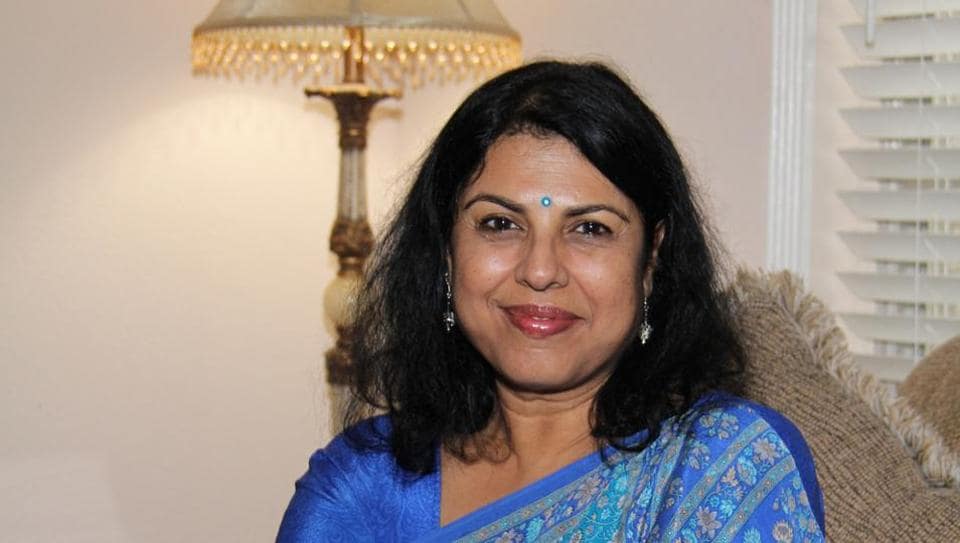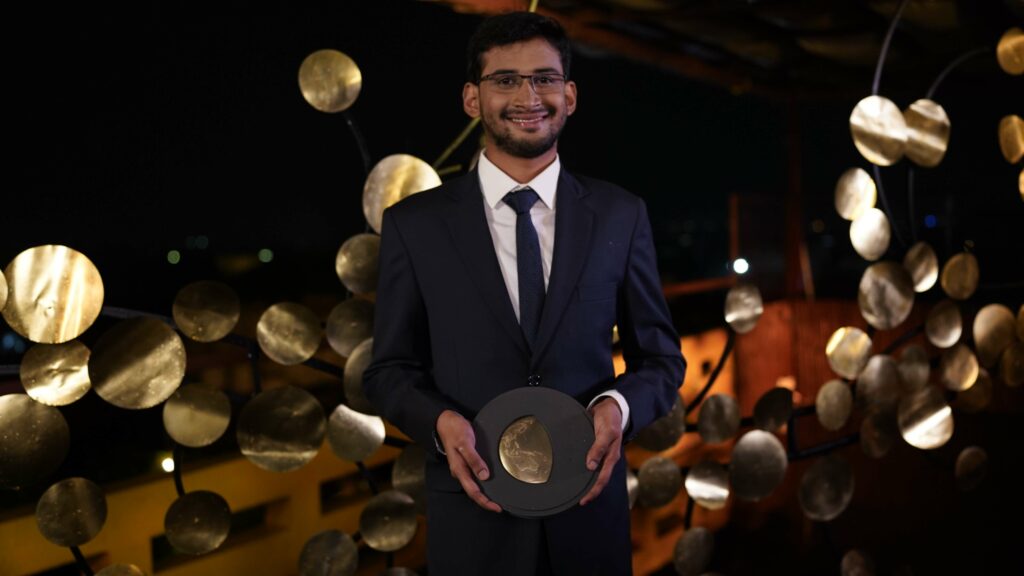(October 30, 2021) Once upon a time there were five brothers who were the epitome of obedience. One fine day when one of them—the most dashing of the lot—brought home a beautiful wife, Kunti their mother commanded that they share whatever he’d brought home. The story of how Draupadi landed herself five husbands is a rather famous one. Paeans have been sung about the Pandavas’ obedience, but what of Draupadi? Was she happy to have unwittingly landed herself five husbands? What of her secret attraction to a man who could have made her a better partner, but she’d spurned due to misplaced pride and a quick tongue?
I am so honored to be on the AGBLF Book Prize List! @HarperCollinsIN https://t.co/KUtunqEYzB
— Chitra Banerjee Divakaruni (@cdivakaruni) October 20, 2021
These are questions that have probably risen in many a mind, but were finally given shape by Chitra Banerjee Divakaruni. Her version of the Mahabharata, (Palace of Illusions) from a woman’s point of view, offered readers a new perspective on the mythology. The Indian American author, who has authored over 15 books, has turned the spotlight on women in each of her works. Be it exploring the travails of immigrants in Mistress of Spices and Arranged Marriage, the coming-of-age story in Oleander Girl, or giving her own spin to mythology and history with Palace of Illusions, The Forest of Enchantments, and The Last Queen; every book has had its centre a woman with a heart of gold and nerves of steel. In a world where most mythologies have celebrated the male figure and have suppressed women’s voices, Chitra has brought forth the subtleties and complexities of being a woman. Her books turn social constructs on their heads and lend a voice to the forgotten women.
It all began in Calcutta
The inspiration for her works, she has said, was her mother, a strong-willed woman who raised Chitra and her younger brothers almost single-handedly in the face of great hardship. “My mother was a teacher and believed in the value of learning. She always wanted to become a writer, but she never got the opportunity to explore that facet of hers. Perhaps, I am fulfilling her dream,” she said in an interview with Travel + Leisure. Incidentally, Chitra herself is a teacher; she is the Betty and Gene McDavid Professor of Writing at the University of Houston Creative Writing Program.
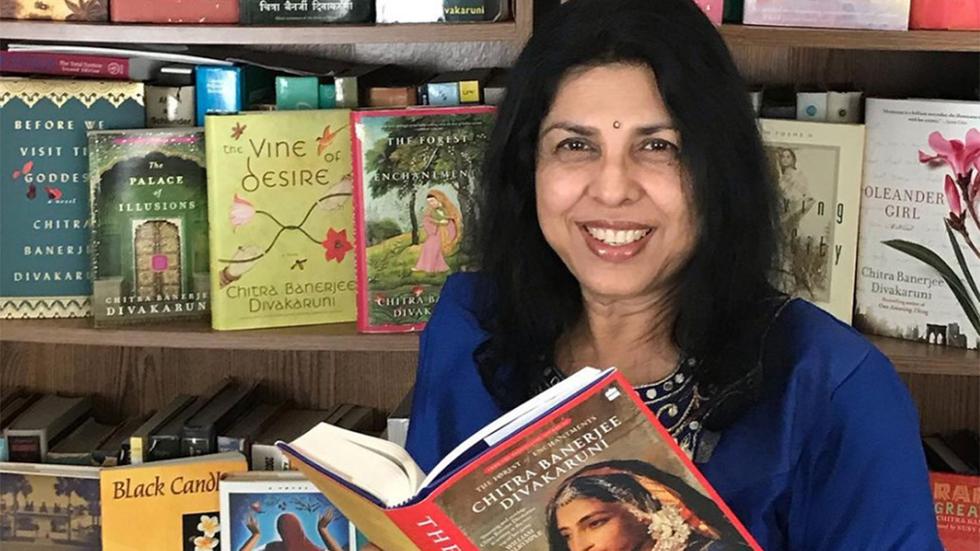
Chitra Banerjee, Author
Born in Calcutta in 1956, Chitra completed her BA from University of Calcutta in 1976. That same year she moved to the US to do her Masters at Wright State University and eventually did her PhD from the University of California, Berkley in 1985. While at college, she held various odd jobs to help get her through; from babysitting, working at an Indian boutique, to slicing bread and washing science lab instruments.
Writing to heal
All this while though, Chitra Banerjee was homesick and felt like an alien in a new country. Life as an immigrant is never easy and back in the 70s with no internet connectivity and exorbitantly priced phone calls, there was little that she could do to stay in touch with her family back home in Calcutta. The only way for her to thus deal with her loneliness was through her writing. She began maintaining a diary where she’d put down all her thoughts. In an interview with Friday Magazine, she said, “Living an immigrant’s life was an extremely powerful and transformative experience for me and I wanted to explore that through writing.”
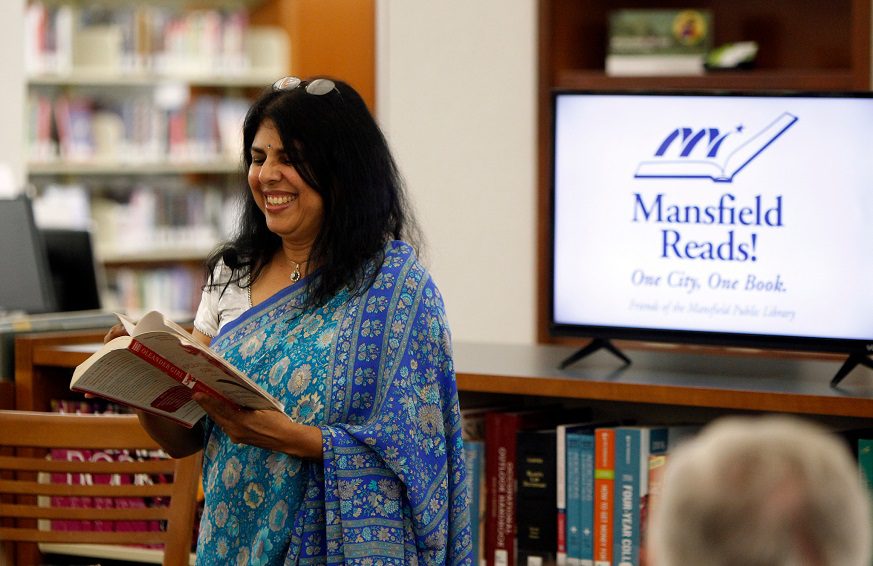
But it was news of her grandfather’s death that really set her off. Since she couldn’t go back home, she channeled her grief into writing a poem about him. Soon more poems followed before she decided to switch to prose as she felt it was a better medium.
Writing turned out to be cathartic for this Global Indian as she began to come to terms with her new life and her distance from home. She enrolled at a community college to further hone her writing skills where a teacher who was impressed by her work, urged her to get in touch with a literary agent. The agent recognised Chitra’s talent and helped her publish her first book Arranged Marriage, a collection of short stories on immigrant women from India who were caught between two worlds. The book was a huge success and earned Chitra the American Book Award, a PEN Josephine Miles award, and a Bay Area Book Reviewers’ Award.
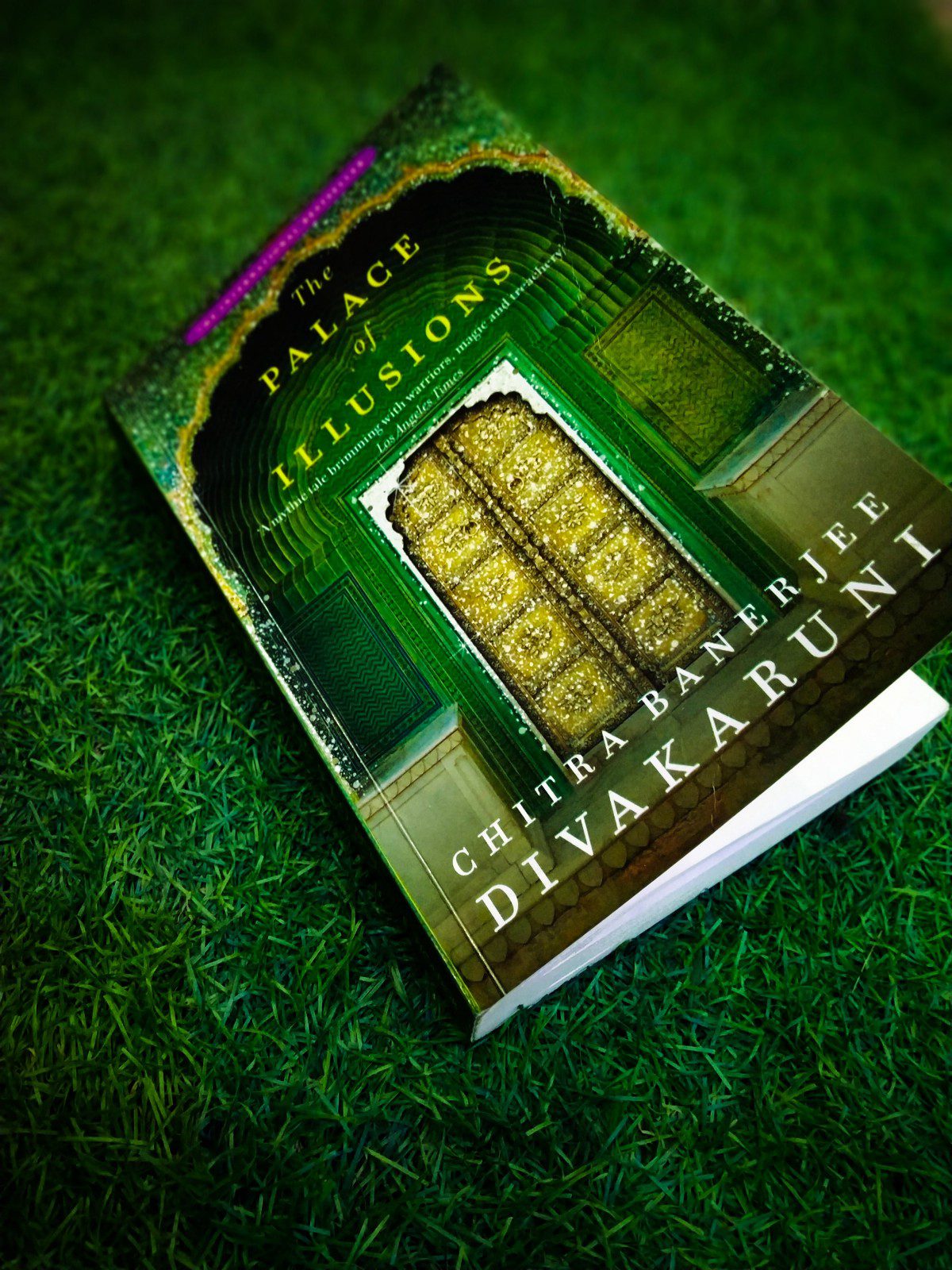
Lending voice to women
Soon other books like The Mistress of Spices, Sister of My Heart, and Unknown Errors of our Lives followed. Her work on the lives of immigrant women gave voice to the millions of Indian women struggling to straddle both worlds. However, the author was ready to explore other subjects and the first image that came to her mind was of her grandfather and his treasure trove of stories based on Indian epics and mythologies that had once filled her childhood.
Growing up in Calcutta, Chitra would spend many holidays with her grandfather who would spend most evenings narrating stories from the Ramayana and Mahabharata to Chitra and her cousins. “He was a great storyteller and I grew up listening to some wonderful and complex tales. However, as I grew older, I was not satisfied with what I’d learned about the major women characters from these stories. Most of these epics were all about the men and their valour; what of the women? I often wondered what a Draupadi or a Sita felt as these great wars were fought; what did their tragedies feel like? I wanted to bring them alive,” she said.
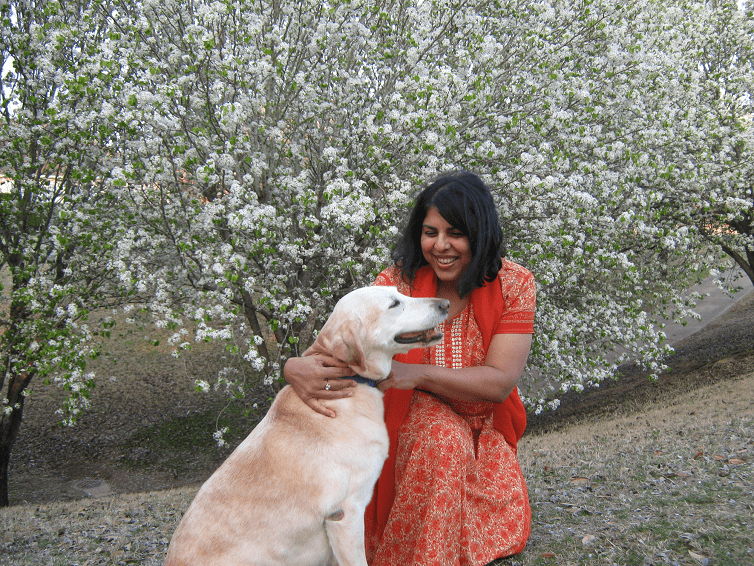
That’s how Palace of Illusions and The Forest of Enchantments came about. They retold the Mahabharata and Ramayana from the point of view of Draupadi and Sita. They portrayed both women as strong, complex characters that were otherwise just invisible stories. Some of her works have also been adapted to the big screen: Mistress of Spices starred Aishwarya Rai and Palace of Illusions is also soon to be made into a film.
A passionate advocate for women’s rights, Chitra has ensured that she captures forgotten voices and stories in her books. Already busy with her next novel that is set around India’s independence, the author says that it will be a sort of follow up to The Last Queen, which was about Maharani Jindan whose kingdom was snatched away by the British.
Giving Back
Apart from juggling a full-time job as a professor and her work as an author, Chitra Banerjee also ensures that she does her bit to give back to society. She is the president of MAITRI, a helpline for South Asian women, particularly victims of abuse and domestic violence. She is also involved with Pratham, a non-profit that seeks to improve literacy among disadvantaged Indian children.
For a woman who struggled to adapt to life as an immigrant in a new country to now lending a voice to forgotten and marginalised, Chitra has come a long way and has been doing her bit to further the complexities and beauty of Indian culture.
- Follow Chitra Banerjee Divakaruni on Twitter
Read a similar story of Madhuri Vijay, The Indian author who landed in Hawaii.

